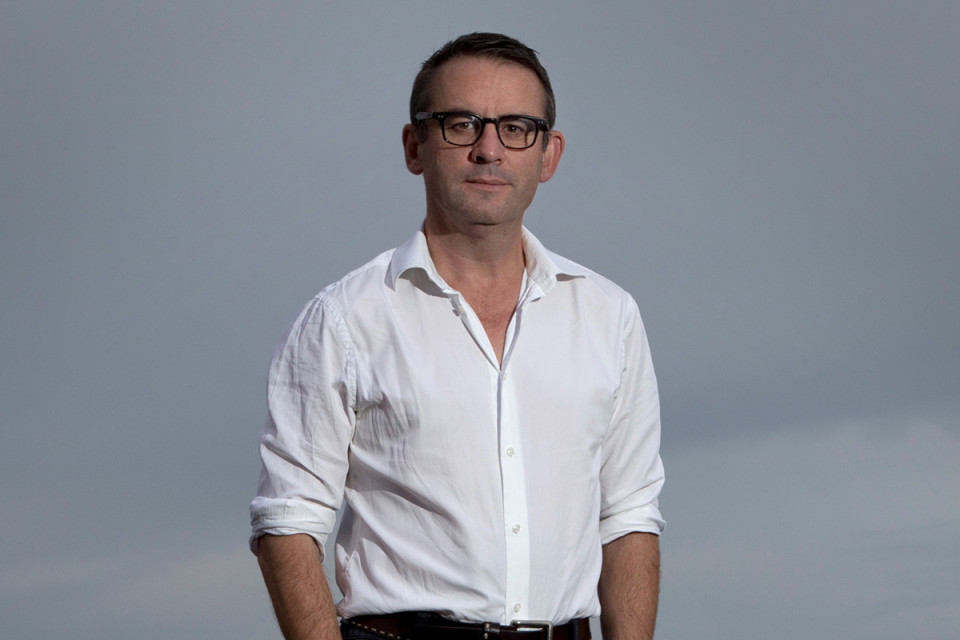Paul Kildea was a Young Artist conductor at Opera Australia when in 1997 he made his debut with Neil Armfield’s landmark production of A Cunning Little Vixen, after this assisting Simone Young throughout Europe, returning in these years to Opera Australia to conduct The Barber of Seville, La bohème, and The Turn of the Screw. He has subsequently conducted throughout Australia and Europe, including guest appearances with the Slovak Philharmonic Orchestra, Ensemble 2e2m in Paris, the Nash Ensemble in London, the West Australian Symphony Orchestra, the Sydney Symphony Orchestra, the Hamburg Philharmonic Orchestra, and for the Aldeburgh Festival, where during a four-year appointment as Head of Music he conducted an exceptionally broad repertory.
In 2019 it was announced that Paul would be the next Artistic Director of Musica Viva after returning to live in Australia. He also conducted Albert Herring (Britten) for the University of Melbourne, and The Canberra Symphony Orchestra in a program featuring works by Arriaga, Rodrigo and de Falla. He made guest appearances at the 10 Days on the Island Festival (Tasmania) and in the chamber music series, A Brief History of Time, at the Adelaide Festival.
Some highlights of Paul’s career include return engagements with Opera Australia for The Magic Flute and A Midsummer Night’s Dream; to Aldeburgh for Albert Herring and Noye’s Fludde, in the Festival’s official celebration of Britten’s centenary; La bohème and Candide for Opera Queensland; War Requiem (Brno Festival, Bratislava Festival and the Australian Youth Orchestra in Sydney and Perth); Candide for Opera Australia (nominated for a Helpmann Award for Best Classical Concert); Strauss’s Vier letzte Lieder and Berlioz’s Les nuit’s d’été (Perth Festival); Strasnoy’s Six Songs for an Unquiet Traveller (Paris and London); A Midsummer Night’s Dream and Dialogues des Carmélites (Hamburgische Staatsoper); Mahler’s Rückert-Lieder (Perth Festival); The Turn of the Screw (Cheltenham Festival); his debuts with the Sydney Symphony Orchestra and the BBC Symphony Orchestra; studio recordings for BBC Radio 3; Jake Heggie’s Dead Man Walking (Sydney); concerts in the Palestinian territories; and a collaboration with Christopher Wheeldon and his company Morphoses (Sydney Festival). With the BBC Concert Orchestra and soloists Sarah Connolly and Allan Clayton he recorded the music for John Bridcut’s film Britten’s Endgame, while with artists Adam Bromberg and Oliver Chanarin he created an updated version of Brecht’s War Primer at the Photographers’ Gallery in London. His performances of The Turn of the Screw (Victorian Opera) in 2010 earned him a Green Room Award for Best Conductor of an Opera.
Recently Kildea conducted the Queensland Symphony Orchestra for the Brisbane Festival and made his debut with the Adelaide Symphony Orchestra.
He has held artistic posts with the Aldeburgh and Perth festivals, and was Artistic Director of Four Winds in coastal New South Wales for the successful 2014 festival, in which he commissioned and conducted Kate Neal’s modernist orchestrations of Cole Porter songs for jazz singer Michelle Nicolle. As Artistic Director of Wigmore Hall he revitalized the hall’s artistic programming, commissioning numerous works from young composers and discovering and launching a number of brilliant young artists and careers. At Wigmore he also conducted a broad repertory, including the complete Mahler orchestral song cycles in a critically acclaimed series with mezzo soprano Ann Murray.
Paul Kildea holds an honours degree in piano performance and a master’s degree in musicology from The University of Melbourne – where he is Honorary Principal Fellow and, in 2016, a Miegunyah Distinguished Visiting Fellow – and a doctorate from Oxford University. He gives lecture-recitals throughout the world and is the author of many articles and chapters on music and culture in the twentieth century as well as two acclaimed books for Oxford University Press on Benjamin Britten (Selling Britten and Britten on Music), a composer whose work he has made a speciality on the podium as well as in print. Penguin Press published his major new biography of Britten, Benjamin Britten: A Life in the Twentieth Century in 2013, the composer’s centenary year, which is widely acknowledged as the best book on its subject: it was excerpted for BBC Radio 4’s Book of the Week (read by Alex Jennings) and acclaimed by the Financial Times as ‘unquestionably the music book of the year’. In June 2018 Penguin will publish his new book, Chopin’s Piano: A Journey Through Romanticism.
